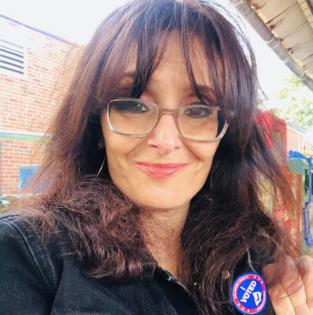COUNTERPOINT: I discovered the meaning of Thanksgiving in a Paris apartment
Published in Op Eds
Thanksgiving was never an important holiday for me. Gathering the family from near and far for a celebratory meal wasn’t unusual; our family was composed of Italians and a small sprinkling of Irish.
Growing up, we always gathered around different tables at different houses, broke out the biscotti and anisette and whatever random pasta dish was cooking on the stove, and reveled in the gift of multiple generations.
For us, that Thursday that bounced around every year, confusing our calendars, merely marked the start of the “real” holiday: Christmas.
We enjoyed the turkey and stuffing (no one called it dressing) and the various jewel-toned condiments like cranberry sauce and Jell-O molds with marshmallows; the trays of Brussels sprouts crispy with bacon and breadcrumbs; the sunset-hued sweet potatoes and their mashed cousins swimming in butter; and, of course, my mother’s famous whiskey-soaked pumpkin pies. It was always a wonderful meal.
But to be honest, it wasn’t all that special to me. Until it became the most important day in my life.
In 1981, I was a junior at Bryn Mawr College, majoring in French. In April of that year, my father surprised me with the gift of a year abroad studying in France. I hadn’t expected it or even particularly wanted to go. I was a homebody, content with the smaller perimeter of my happy universe, which included three younger brothers, a baby sister, a dog and my loving parents.
Weekly trips from the beautiful Bryn Mawr campus into Philadelphia were enough traveling for me. However, my father made the year in Paris seem like a great life-changing adventure, partly because he’d convinced me. Still, mostly because I didn’t want to disappoint him, I agreed to go.
And then, the unthinkable happened.
On May 9, 1981, my father went to the doctor to find out why he’d been losing weight and coughing. This runner and weightlifter, who’d given up smoking five years before and was eating healthy food, was diagnosed with terminal lung cancer. Doctors gave him one year to live, at most.
After the shock wore off, our family mobilized into action. Ted Flowers wasn’t going to go gentle into that good night. At 42, with a flourishing law practice and six people who adored him, this redheaded Irishman had everything to live for. And his eldest child put her foot down: I wasn’t going to Paris. I’d stay home to be with the rest of them and help Daddy fight.
He refused to let me cancel. I remember his exact words: “You are not sitting at home to watch me die! I’ll be fine. I promise you, Chrissy. And I’ll be here when you get home.”
Resistance was futile. So, on Sept. 11, 1981, I began the adventure I didn’t want.
I’ll admit the first few weeks were tough. I was often lonely. I took long walks, ate many croissants and gained weight, wrote letters home every day, took photos with the old Minolta camera my father had lent me for the trip, and lived for the weekly collect phone call I was allowed to make home. (This was decades before Zoom and WhatsApp, so you can imagine the cost.)
Overall, I could function pretty well because I was 19, and this was, after all, Paris. My little apartment was in the scenic center of a bustling neighborhood. I lived around the corner from the Rodin museum, and there were patisseries at virtually every corner. My landlady was the spitting image of Coco Chanel (without the notoriously bad temper).
Then, it was the third week of November, and … nothing. Not a Turkey or Pilgrim in sight. No reference to thanks, to pumpkin pie or even to disgusting cranberry molds. The French had no use for it, at least not 43 years ago.
I heard from some students that they were going to an Episcopal church where expat Americans were having a small get-together, but I wasn’t interested. Why would I celebrate Thanksgiving with strangers when my whole conception of the holiday was family?
And so, sad and lonely, I created my private celebration. I bought an Apple Tarte Tatin and pretended it was a pumpkin. I bought some apples, toothpicks and gumdrops and made those little faux turkeys I’d learned to make in third grade. I went to the Jardin de Luxembourg and gathered up the few remaining fallen leaves, brought them home, and sprinkled them in my folding table. I popped a cassette my mother had made for me of local Philly radio shows into my boom box so I could hear that horrible, beloved Philly accent. I bought two ham and cheese sandwiches on French bread and a half bottle of wine.
And then I prayed that my father would live forever.
That night, I called my family. They were six hours behind, preparing to sit down for their meal. My father took the phone, and his voice, weak but still recognizable, was the greatest blessing.
My father died six months later, on May 8, 1982. Part of me wishes I’d been there for that last year. But deep inside, I know that my Thanksgiving thousands of miles away was his last gift to me, the gift of freedom, of adventure, of independence, of protection against the daily grief of seeing him fade.
And I realize that my Thanksgiving in Paris was the most authentic and powerful holiday I’ve ever experienced. Because it indeed was the best manifestation of gratitude, blessing and thanks.
____
ABOUT THE WRITER
Christine Flowers is an immigration lawyer in Philadelphia. She wrote this for InsideSources.com.
___
©2024 Tribune Content Agency, LLC




























































Comments